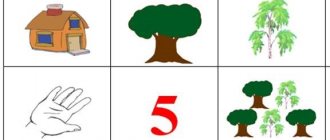Probably, many have at least once encountered our ordinary Russian words in literature or heard them in films of the 19th century, but with the letter “s” added to their end. For example, “no, sir,” “excuse me, sir.” For what reason was this done and what was its significance?
Slover
It turns out that the particle “s” added to a word in any part of speech is called a word word, and this form of address or speech was used only in special cases. At the beginning of the 19th century, these words were spoken to people who were revered and respected.
Typically, this form of speech was used in conversations at work between partners or colleagues, with strangers, or at holiday celebrations.
Expression of respect and ridicule
In the 19th century, the wordsmith was used solely to show respect or even deference to the interlocutor. Most often, “s” was added to words when in public places, at celebrations and receptions. In addition, servants and maids often answered “yes, sir” and “no, sir” to their masters. In this case, the wordsmith played the role of a kind of demonstration of self-abasement and submission.
However, already in the next twentieth century, the particle “s” began to disappear from the Russian language. Before finally sinking into oblivion, the wordsmith managed to spend a little time as a particle expressing irony and even mockery. Often, with the help of a word reader, they pointed out that part of the sentence that was considered the most acute and important.
After the revolution, when all kinds of “bourgeois” addresses were excluded from the speech of a Soviet citizen, the word “sir” also found itself out of use. It is clear that the wordsmith also left conversations with him.
Why “slover”?
This definition of the particle “c” was given by the very alphabet of the educational system of people of the 19th century. As many already know, the letter “a” was pronounced as “az”, the letter “b” as “buki” and so on.
But the letter “s” was spoken as a “word”. But in those days, “ъ” was also often added to the end of words, which also had its own name — “er”. This is how the word “dictionary” came about.
When not to use an apostrophe
The most common mistake is adding an apostrophe where it is not needed. We've found apostrophes in the most surprising places... Below are pertinent tips to avoid confusion.
- Do not use an apostrophe in possessive pronouns: “ whose ,” “ ours ,” “ yours ,” “ his ,” “ hers ,” “ its ” or “ theirs .”
- Don't use an apostrophe on plural nouns that are not possessive: " CDs ", " 1000s " or " 1960s ".
- Don't use an apostrophe on verbs. Sometimes it is declared in those ending in “s”: “ marks ”, “ s ees”, “finds”.
- Sometimes people confuse the abbreviation “ it is ” ( it’s ) and the possessive pronoun “ its ”. It's not the same thing at all. Compare.
The dog pulled on its leash. – The dog pulled on its leash. I just realized it’s time to go! “I just realized it’s time to go!”
- Also, sometimes people confuse the possessive pronoun “ your ” and the abbreviation “ you are ” ( you're ).
Don't forget your umbrella. - Don't forget your umbrella. You're the worst dancer I've ever seen. -You are the worst dancer I have ever seen.
- And besides, there is also “ whose ” (whose, “whose, “whose”) and “ who’s ” (who is). Same scenario as above.
Whose turn is it to take out the trash? – Whose turn is it to take out the trash? I wonder who's going to play Hamlet. – I wonder who is going to play Hamlet?
Read also
Light Li-Fi technologies
Abbreviation of a word
It is false to think that the particle “s” is just a letter that gives a more respectful tone to the conversation. In fact, underneath it was hidden a more detailed word “sir” or “madam”. The word "sir" is also a shortened version of the word "sovereign". Therefore, when pronouncing “Sorry, sir,” the interlocutor actually means “Sorry, sir.”
In the Russian language of that time there were a lot of abbreviated words and addresses. Most likely, many have heard such addresses as “your brod,” which meant “your honor.”
Polite treatment
Almost every language has words for politely addressing a person. For example, in England - “sir”, “ma’am”, “miss”, in France - “monsieur”, “madame”, “mademoiselle”, in Spain - “senor”, “senora”, “senorita”. There were such words in pre-revolutionary Russia - “sir” and “madam”.
All such addresses come from words expressing special respect for a person and placing him above the interlocutor. So, in French, monsieur comes from mon sieur - “my master.” And the Russian “sir” is short for “sovereign”.
Disappearance
Servants also answered or addressed their masters with this ending. But by the end of the century, the word word began to mean a slightly different meaning. People who were arrogant began to demand such treatment, and over time the wordsmith began to talk more about humiliation than respect.
With the advent of the 20th century, the word word began to gradually emerge from people’s everyday dialogues. But before completely leaving Russian colloquial speech, the particle “s” began to be used in the speeches of Russian people who wanted to make fun or laugh a little. Also, by adding a word word to the word, people emphasized the most important phrase from the sentence.
After the revolution happened in the country and all the “sirs” instantly turned into “comrades”, the dictionary lost its need for use. But the majority of the adult and elderly population, out of old habit, still spoke words with a particle “s” at the end. They were also joined by persons who held the positions of professors, teachers, and doctors. Thus, they wanted to emphasize the special position and development of their own mind in society.
At the moment, no one uses a dictionary, and if they say the word “sir,” it is only with good irony.
LiveInternetLiveInternet
Reading Russian novels of the nineteenth century, it is impossible not to notice this feature in them: heroes very often add -s at the end of words. It is not clear to modern people why this should be done and what this “s” actually means. This point is directly related to the history of the language and requires clarification.
The particle -с (in the old spelling it looked like съ) is a so-called word word. This linguistic term means a particle that, under certain conditions, is attached to a word. In its original meaning, it was an abbreviation for the words “sir” (“sovereign”). It was appropriate to use such a particle after almost any significant word, but most often it was used after verbs (for example, “please, sir,” that is, in fact, “please, sir”), as well as the words “yes” and “no.” Most often, the “place” of this particle was in official conversations and business negotiations, and it was used in relation to each other by persons equal in rank and social status, although usually it was still used in the case when a lower rank addressed a person who was higher than him in position. The abbreviation was formed in a sequential way as follows: first, “sovereign” was shortened to “sir,” and then, in accordance with the tendency to save linguistic resources, this word was shortened to the usual particle съ. It later acquired the form -s in writing - this happened after the law of open syllables ceased to apply in the Russian language. No less interesting is the origin of the name of this particle. The fact is that in the 19th century, children learned the alphabet using spellings. Then the letters had their own names, so that peculiar spells were pronounced. As a result, the term was derived from the names of the two letters that make up the syllable: s - “word”, ъ - “er”, all together s, we get word-er-s. The history of the connotative coloring of this particle is no less interesting. So, in the nineteenth century it was used as a form of politeness, in this way respect was expressed for the interlocutor, the person demonstrated that the one to whom he was addressing was very pleasant to him. However, by the end of this century, the connotative coloring of the particle changes - now it is a form of self-deprecation; the person using it immediately puts himself in a lower position compared to his interlocutor. The use of words in literary works had a specific purpose - with its help, a person was characterized as a low person and prone to servility. In addition, many authors, in particular Dostoevsky, gave this particle another connotation - with its help, irony was expressed. It is interesting that in the twentieth century that particle acquired special meaning. Before the revolution, family doctors used it in their speech, who in this way not only gave themselves authority, but also reassured the sick. After the revolution, it was emphatically used by the “pre-Soviet” intelligentsia - thus, people involved in this narrow circle demonstrated their elitism, what was called in those days “permitted lordship”, and for simpler people it served as a sign of elitism in good ways, but more often in bad sense. It was also preserved by Russian emigrants, for whom it became a kind of symbol of the idyllic “old times.” In modern colloquial speech this word is not used, and in literature it has practically fallen out of use, only occasionally appearing on the pages of books in order to help the author more clearly express his ironic attitude towards a situation or character. Thus, we can say that by the beginning of the 21st century, the word word had completely disappeared from the Russian language, having gone into a deep passive reserve. Found here
How to pronounce English verbs ending in -s (-es)?
There are three options for pronunciation of the ending -s (-es): [s], [z], [iz]. The choice of pronunciation will depend on the sound with which the stem of the verb ends.
- The ending -s is read as [s] if it is preceded by a voiceless consonant. For example, To ask - he asks, To cook - he cooks.
- If a word ends in an unreadable vowel -e, for example like, the ending of the verb likes will also be read as [s]. Remember that you need to pay attention to the last sound, not the letter. For example, To debate - he debates, To make - he makes.
- The ending -s is pronounced [z] if it is preceded by a voiced consonant or a pronounced vowel. For example, o love - he loves, To dig - he digs, To play - he plays, To listen - he listens.
- The ending -es is always read as [iz]. For example, To mix - he mixes, To mash - he mashes. However, this ending should not be confused with -s after the unreadable vowel -e at the base of the verb. For example, To grate - he grates, To bake - he bakes.
The 3rd person singular form of the verb needs to be memorized in order to use auxiliary verbs correctly in English.
Auxiliary verbs ending in -s
The ending -s can be seen in the auxiliary verb to be in the present and past tense, as well as in the auxiliary and semantic verb have. For example:
- Present tense. To be - is. He is a wonderful teacher! he is a wonderful teacher.
- Past tense. To be - was. He was a wonderful teacher! he was a great teacher
- The auxiliary verb has. He has come home early
- The semantic verb is to have. He has many medals
Modal verbs
There are verbs in the English language that retain their dictionary form, despite the person of the subject with which they are associated. So-called “modal verbs” add semantic nuance to the main verb and express the meaning of possibility, necessity, probability, desirability, and so on. When such a verb comes after the subject in the Present Simple, the endings -es and -s are not added to the semantic verb.
Let's compare a few examples:
- He swims in the lake every summer He can swim_ in the lake every summer He can swim in the lake every year
- Maria loves inviting people over Maria should invite people over Maria should invite guests
When do you put the ending -s/-es on verbs in English?
The ending -es or -s is added to verbs to form the Present Simple tense if the subject in the sentence is in the 3rd person singular form. This can be any singular noun or pronoun he/she/it - he, she, it.
- She makes a great curry! she makes amazing curry
- Mother likes sushi
- He drives a car
- Peter loves traveling Peter loves traveling
- It feels amazing! the feeling is amazing
Exception: They want to go clubbing.










